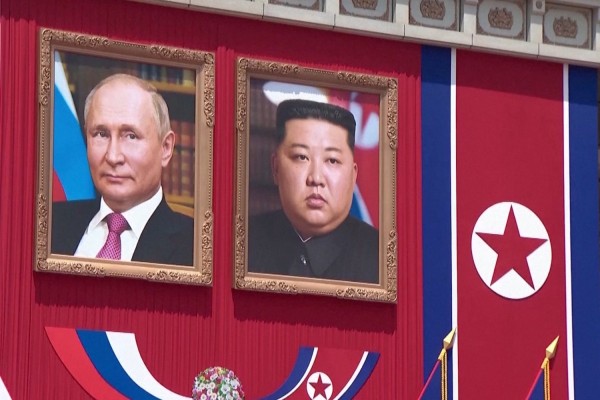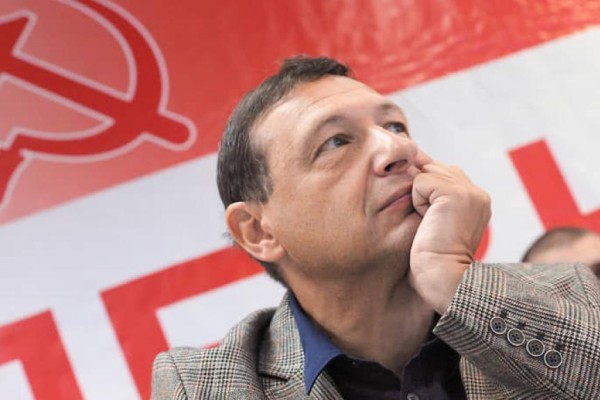-

Starmer’s Labour: the UK establishment’s supernova
With the Conservatives headed into disintegration or irrelevance, the incoming Labour government may prove the penultimate stage in the collapse of the UK political establishment. The brightness of its success in fashioning Starmer’s Labour into its instrument is the gaseous brilliance of the supernova, the efflorescence that precedes a star’s death.
-

Far-eastern promises
The Ukraine war is proving that the world is an interconnected place, as events there are influencing the balance of power elsewhere, including the Far-East. Western sanctions against Russia have, for instance, brought Russia and China closer together. Now, Russia is spreading its influence in the Pacific region, striking a further blow to US interests.
-

Boris Kagarlitsky: a new letter from prison
In his latest letter from a Russian prison, Boris Kagarlitsky addresses why, in 2024, we should continue to find Lenin interesting. The letter was translated from the original Russian version by Renfrey Clarke. Clarke also translated Kagarlitsky’s latest book, The Long Retreat: Strategies to Reverse the Decline of the Left, available now for pre-order from Pluto Press.
-

The West’s double standards on Georgia’s ‘foreign agents’ bill
It would appear that requiring foreign-funded organizations to register with the government is acceptable as long as it is Western states doing the requiring. But when the tables are turned, and it is Western-funded institutions that are being obliged to register, suddenly foreign agent laws turn out to be threats to democracy that are incompatible with fundamental values.
-

Kagarlitsky the irrepressible
The following is an excerpt from the forthcoming book, The Long Retreat: Strategies to Reverse the Decline of the Left, by sociologist Boris Kagarlitsky. As well as bringing Russian and Western thinkers into dialogue, Kagarlitsky draws upon his experiences as a Russian dissident since the latter days of the Soviet Union in this encyclopaedic analysis of leftist strategy.
-

Leftists worldwide rally around Boris Kagarlitsky, call for liberation of all Russian anti-war political prisoners
The Boris Kagarlitsky international solidarity campaign aims to build so much support that it becomes impossible for politicians who are in dialogue with the Russian government to ignore it, which would bring pressure to bear for Kagarlitsky’s liberation. The campaign also seeks to draw attention to the plight of Russian political prisoners, the vast majority of whom are imprisoned on baseless charges.
-

Strong vibes from a quiet source
This article by Sol Littman originally appeared in a 1987 edition of Canadian Dimension. It casts a critical eye on the Deschênes Commission, officially known as the Commission of Inquiry on War Criminals in Canada, which was established by the federal government in 1985 to investigate claims that Canada had become a haven for Nazi war criminals.
-

Putin is here to stay, whether the West likes it or not
Russia’s new economic model may prove inefficient in the long term, creating a situation in which it is never able to catch up economically with the West. But in the short term, Russia looks more than able to withstand the pressures of the war in Ukraine. At the same time, Putin is here to stay. These are realities that policy makers in the West are going to have to face.
-

Freedom for Boris Kagarlitsky
There is a clear reason for this crackdown on the Russian left. The heavy toll of the war gives rise to growing discontent among the mass of working people. The poor pay for this massacre with their lives and wellbeing, and opposition to war is consistently highest among the poorest. The left has the message and resolve to expose the connection between imperialist war and human suffering.
-
_600_400_90_s_c1.jpg)
‘Stop the War’ means ‘Death to the Dictatorship’
The main goal of the war is to protect the Putin regime and its autocratic vassal states, like the Lukashenko dictatorship in Belarus, from the threat of revolution. This goal coincides perfectly with the elite’s dreams of rebuilding the Russian Empire, which requires enslaving Ukraine but Russian expansion will not end there.



